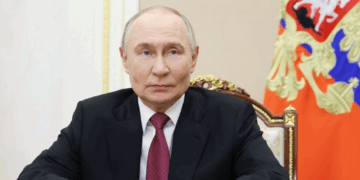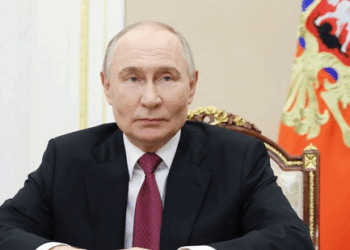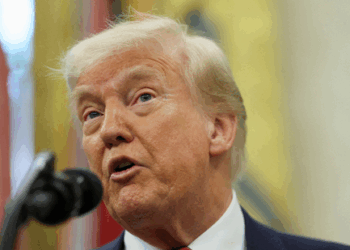The border tensions between Israel and Hezbollah escalated further as southern Lebanese towns bore the brunt of Israeli shelling in response to a renewed rocket attack by the powerful armed group Hezbollah. This cross-border violence has extended into its fourth day, with both sides exchanging fire and threats.
Hezbollah, in its statement, confirmed that it had launched precision missiles at an Israeli position. This response was triggered by the killing of its members during Israeli shelling earlier this week. Hezbollah’s statement included a pledge of “decisive” responses to attacks on Lebanese territory, particularly those that result in casualties.
The Israeli military retaliated by launching attacks into Lebanese territory after one of its northern positions near the Israeli town of Arab al-Aramshe came under anti-tank fire on Wednesday. At the time of this report, the Israeli military had not provided details about any casualties resulting from their actions.
The situation in southern Lebanon was tense, with residents in the town of Rmeish reporting Israeli shelling in their vicinity. A Lebanese security source confirmed that Israeli artillery rounds were targeting the rocket launch site located around Dhayra, across from Arab al-Aramshe.
Local Lebanese television station al-Jadeed broadcast images of white smoke billowing from a wooded area near homes and farmland in Dhayra, indicating the impact of the ongoing hostilities.
Both Hezbollah and the Palestinian faction Hamas terrorists have been active in the recent border tensions. On Tuesday, Hezbollah claimed responsibility for attacking an Israeli tank using a guided missile, even posting a video of the tank’s destruction. In tandem, Hamas terrorists announced launching a salvo of rockets into Israel.
These hostilities along the Israel-Lebanon border come on the heels of Hamas terrorists launching a deadly attack against Israel over the weekend, which prompted Israel to respond with a bombing campaign against Gaza. This spate of violence has rekindled memories of the summer of 2006 when Iran-backed Hezbollah and Israel engaged in a brutal month-long war. The ongoing tensions suggest a volatile and precarious situation at the border.
As the situation unfolds, the international community closely monitors developments in the region, hoping for a peaceful resolution to the escalating tensions.








 India
India












